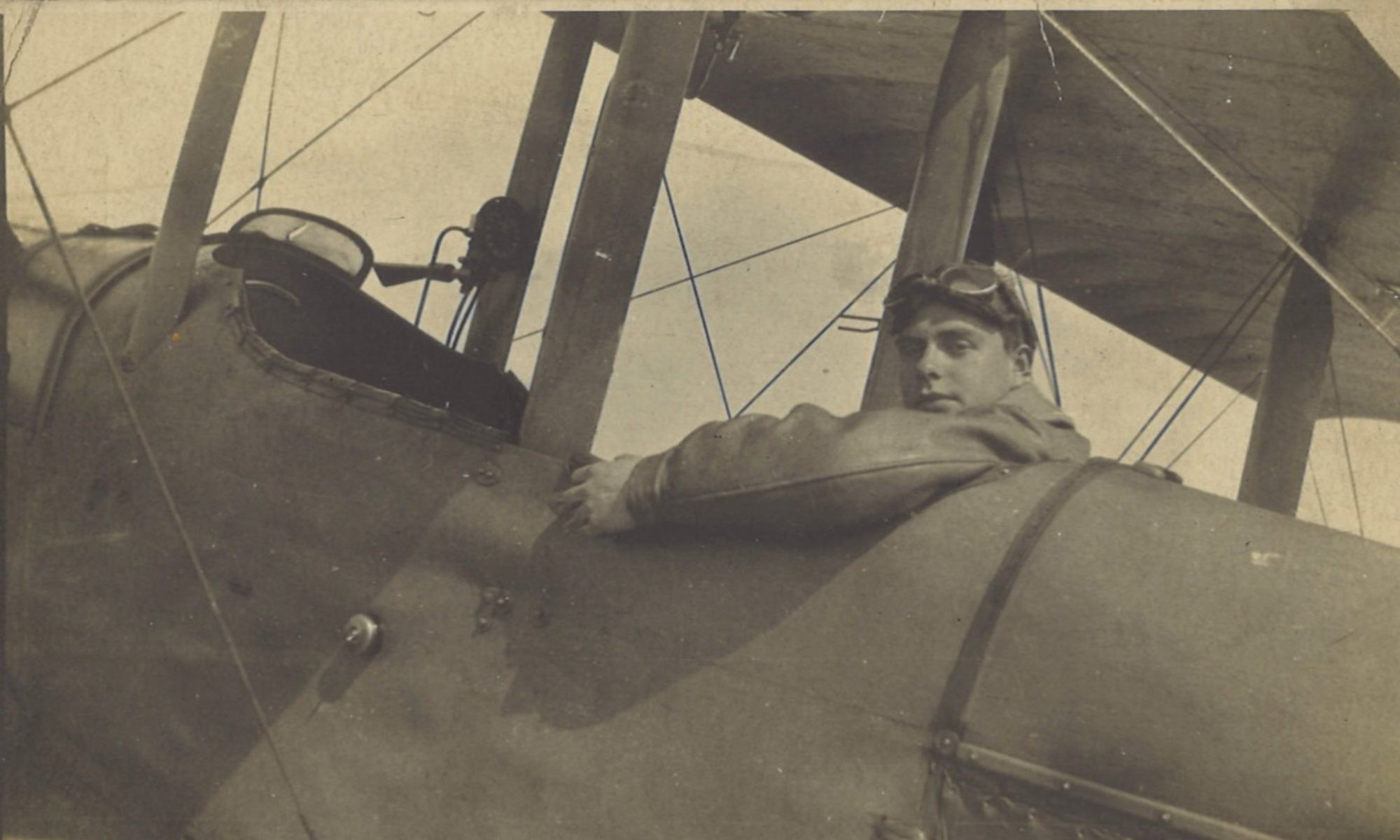Puffs – an enigmatic entry.
![]()
![]()
Date: 24.3.18 Time: Nil Remarks: Puffs
Evidently no time was spent in the air, but this wasn’t because of the weather: the Met Office weather station on Salisbury Plain reported lovely weather (blue sky, with not more than one quarter covered with cloud) for both morning and afternoon of 24 March.

So the day was probably not spent sitting around puffing on cigarettes.
A more likely explanation is that this refers to early instruction in cooperating with artillery, which was the principal duty of the RFC and the core business of Greg’s future squadron. “Artillery puff targets” were used as ranging exercises. See Jefford ‘Observers & Navigators’, 2nd Ed., Grub Street, London 2014 p52 fn2:
The use of ‘puff targets’ involved a full-scale simulation whereby puffs of smoke were released on the ground to represent shell bursts in the vicinity of a ‘target’, the observer flying in an aeroplane being required to estimate the range and bearing of the error and pass an appropriate encrypted correction to the ‘battery’.
There is also a discussion that touches on this point on the Great War Forum.
Addendum (24 March 2018 @ 15:00): It is possible that ‘Puffs’ refers to an indoor exercise involving a modelled miniature landscape. The following account comes from an Imperial War Museum interview with Lt T. E. Rogers RFC, and relates to his training at Brooklands as an Observer in the summer of 1917. Bear in mind that towards the end of the war the Observer’s principal duty was looking out for (and dealing with) enemy aircraft, and the Pilot had taken over most of not all of the artillery liaison work:
They had little model villages and stretches of land down below, and we were up in a balcony. We looked down on this model landscape and there they would have bursts of shellfire, minute little things: puffs of smoke came out of the ground. Then we had to look at this miniature landscape and compare it with a map and get the exact map points that the burst had occurred. (https://www.iwm.org.uk/collections/item/object/80000170 Reel 1, at around 11 mins)
So possibly there was a similar facility at Yatesbury.
Anyone have any further suggestions on ‘Puffs’? Feel free to use the Comments box.
Summer Time, when the Living is Easy…
Unconnected with puffs, Sunday 24 March 1918 was significant because it was the first day of British Summer Time for 1918. It had first been introduced by the Summer Time Act 1916, in response to the Germans doing the same a year earlier.
The Royal Museums Greenwich has an article on British Summer Time (BST) and the Daylight Saving Time plan, including the following paragraphs on the history of the whole idea:
The idea of summer time or daylight saving time was first suggested in a whimsical article by Benjamin Franklin in 1784, but it was first seriously proposed in in Britain in 1907 by a keen horse-rider, William Willett. Willett published his feelings in “The Waste of Daylight” – he was incensed at the ‘waste’ of useful daylight first thing in the morning, during summer.
The year after Willett’s death in 1915, Germany adopted daylight saving time. Not to be disadvantaged at a time of war, the UK did the same within a few weeks. Summer time was first defined in an Act of Parliament (the Summer Time Act) in 1916 that stated for a certain period during the year legal time should be one hour in advance of GMT. From 1916 up to the Second World War, clocks were put in advance of GMT by one hour from the spring to the autumn.
Within a few years of its introduction, most countries reasonably north or south of the equator had adopted Daylight Saving Time. However, it has been controversial since the day it was first proposed.
Read more at https://www.rmg.co.uk/discover/explore/british-summer-time-and-daylight-saving (opens in new tab)

